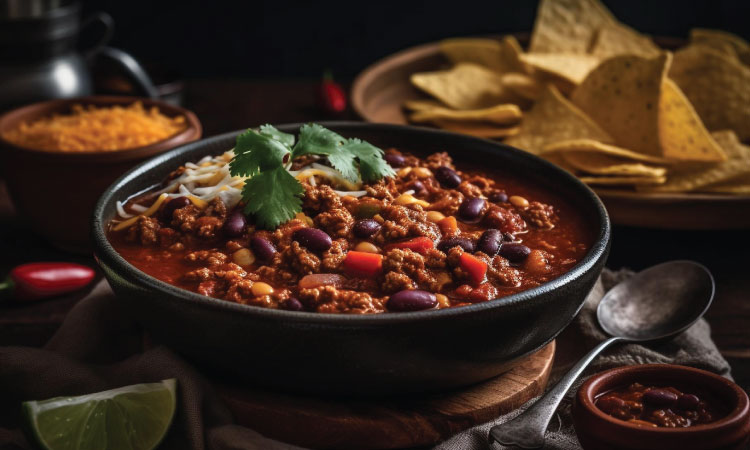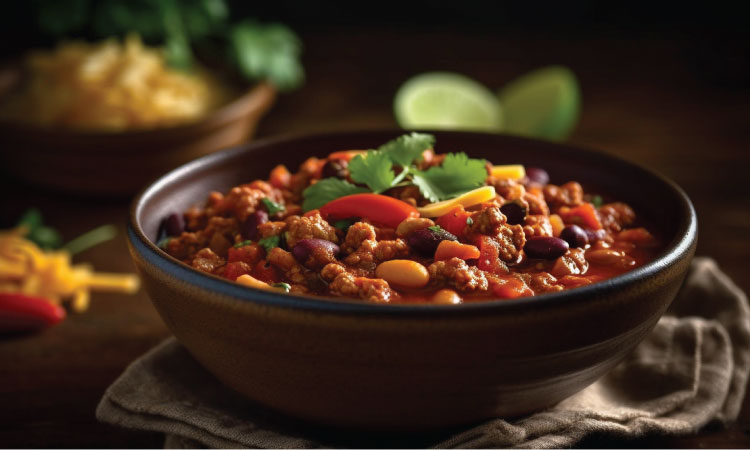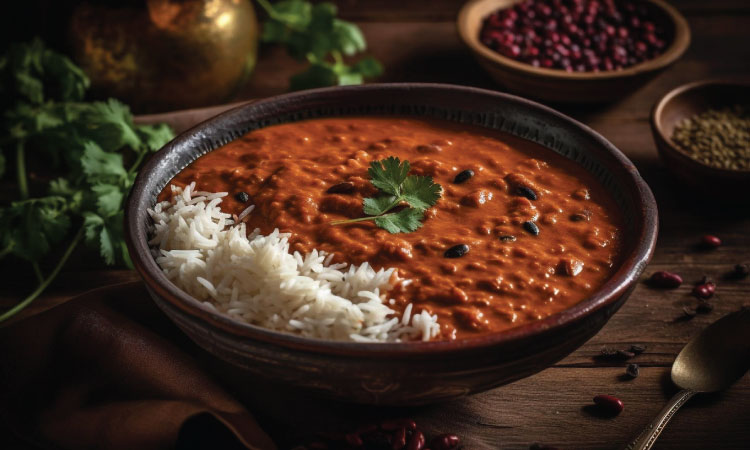When you’re expecting, it’s important to make mindful choices about what you eat, and sometimes that means saying goodbye to some of your favorite foods! It is normal to be concerned about what foods are best for your unborn child’s health and which ones to avoid when you are expecting. Many mothers are unsure about the benefits and drawbacks of having rajma (red kidney beans) during pregnancy.
Red kidney beans are a great choice for a tasty and healthy meal. They are not just delicious food, but they are also full of nutrients. Let us explore the benefits of eating kidney beans (rajma)during pregnancy.
Is Rajma Safe To Eat In Pregnancy?
When kidney beans are properly prepared and included in a balanced diet, they can be a healthy and safe food option for pregnant women. To promote the growth and development of their unborn child, pregnant women should pay close attention to what they eat. Rajma, or kidney beans, are an excellent option for expectant mothers to eat.
Did you know that kidney beans contain significantly more protein than cereals? It’s true! Beans have two to three times the amount of protein compared to cereals1.
Protein is crucial for the growth and development of the fetus. Additionally, it provides a wealth of dietary fiber, vitamins, and minerals such as iron, calcium, and folate. Moderation is a healthy practice when it comes to eating kidney beans during pregnancy.
Also, stay away from kidney beans that are raw, overcooked, or undercooked when you’re pregnant. Even a small number of raw beans can lead to intense feelings of nausea, vomiting, and diarrhea2.
Nutritional Profile Of Kidney Beans
Kidney beans are rich in essential nutrients such as protein, fiber, folate, iron, potassium, and magnesium. Based on the information provided by a source, a serving of 100 grams of cooked or boiled kidney beans without salt contains:
Nutrient Amount Energy 127 Kcal Water 66.9 g Protein 8.67 g Fat 0.5 g Carbohydrate 22.8 g Fiber 7.4 g Calcium, Ca 28 mg Iron, Fe 2.94 mg Magnesium, Mg 45 mg Phosphorus, P 142 mg Potassium, K 403 mg Sodium, Na 2 mg Selenium, Se 1.2 µg Vitamin C 1.2 mg Folate 130 µg Choline 30.5 mg Vitamin K 8.4 µg
Kidney beans also contain manganese, copper, zinc, and vitamin E.
Calculate Due Date With LMP
What Are The Benefits Of Eating Kidney Beans During Pregnancy?

Rajma is a highly nutritious food option during pregnancy, providing your body with essential fiber, protein, and nutrients. This food is packed with essential nutrients that play a crucial role in supporting the healthy growth and development of a fetus.
Here are the top 6 benefits of rajma during pregnancy:
1. Excellent source of Folate
Rajma is a highly valuable source of folate, which plays a vital role in supporting fetal development, particularly during the early stages. So it is highly beneficial to eat rajma during early pregnancy. Folate contributes to:
- Neural Tube Defect Prevention: Folate plays a crucial role in supporting the formation of the neural tube during the initial phases of pregnancy3. Ensuring a sufficient intake of folate from nutritious sources like rajma can greatly lower the chances of neural tube defects, such as spina bifida and anencephaly, in newborns.
- DNA Synthesis: Folate plays a crucial role in DNA synthesis and cell division4. These processes are essential for fetal growth and development5. Adequate folate intake is crucial for promoting the growth of new cells and tissues in the developing fetus.
- Red Blood Cell Formation: Folate is necessary for the production of red blood cells6 , which are responsible for carrying oxygen throughout the body. During pregnancy, the body needs more red blood cells to support the growing baby. Consuming rajma during pregnancy helps prevent anemia and ensures adequate oxygen supply to the fetus.
2. High in protein content
Rajma is a nutrient-dense food that provides all nine essential amino acids7. This makes it a complete protein source. Ensuring a complete protein source is vital for the proper development of the baby’s tissues, muscles, and organs during pregnancy. Also,
- Rich-protein foods like rajma contribute to the production of hemoglobin8, the protein in red blood cells that carries oxygen to cells throughout the body.
- Proteins play a vital role in various cellular functions, including enzyme activity, hormone production, and immune function9.
- Protein regulates blood sugar by decreasing carbohydrate absorption10 from other meals. It may prevent gestational diabetes and stabilize energy levels throughout the day.
3. Enhance immunity
Pregnancy may also weaken your immune system, making you more vulnerable to illnesses such as the flu and the common cold11. Rajma contains vitamin C and zinc, which help boost the immune system12. This can protect against infections for both the mother and the unborn baby. Feel free to enjoy your rajma chawal during pregnancy. Also,
- Rajma contains antioxidants such as flavonoids and phenolic compounds, which help neutralize free radicals and reduce oxidative stress in the body. This gives the body a defense mechanism against various ailments, such as cancer, diabetes, cardiovascular diseases, and neurodegenerative disorders13.
- Protein is necessary for the production and repair of immune cells, antibodies, and enzymes involved in immune function. Rajma is a protein-rich legume.
- The dietary fiber in rajma feeds the good bacteria in your gut, which in turn supports a balanced microbiome. An optimal gut microbiome is essential for supporting a healthy immune system15.
4. Supports bone health
Insufficient calcium intake during pregnancy can affect the strength of the mother’s bones. There is an increased likelihood of developing osteoporosis in the future. Rajma contains a variety of minerals like calcium, phosphorus, and magnesium that are essential for supporting strong and healthy bones.
Thus, having a balanced diet and eating rajma during pregnancy’s second trimester can ensure a mother gets all the necessary nutrients to support her bone health and promote the healthy growth of her unborn baby’s skeletal system.
Also,
- Rajma contains vitamin K, which plays a crucial role in bone metabolism and blood clotting. Vitamin K plays a crucial role in supporting the activation of proteins that are essential for bone mineralization16, which in turn helps to enhance bone strength and density.
- Protein, which is abundant in rajma, is essential for collagen synthesis. Collagen is a fibrous structure that the body uses to form connective tissue. It plays a crucial role in bone formation17.
- Folate in rajma could also play a role in bone health by regulating homocysteine levels18. Hypomineralization and an increased risk of fractures are linked to elevated homocysteine levels19.
5. Rajma has a low glycemic index
Rajma has a low glycemic index20. Thus, rajma during pregnancy promotes a gradual rise in blood sugar levels, supporting consistent energy levels and preventing sudden fluctuations in blood sugar. Also,
- Eating low-glycemic foods can also prevent gestational diabetes21. These foods control blood sugar and insulin sensitivity, lowering the risk of this condition.
- Keeping blood sugar levels stable by consuming low-GI foods can potentially lower the chances of experiencing pregnancy complications like pre-eclampsia, preterm birth, and excessive fetal growth22.
- Low-GI foods have the advantage of being more filling and satiating23, which can help pregnant women feel satisfied for longer periods and reduce the chances of overeating.
- Changes in blood sugar levels can impact both mood and energy levels. Consuming low-GI foods like rajma can help pregnant women maintain stable energy levels and mood, which can contribute to their overall well-being during pregnancy24.
6. A good source of fiber
Rajma is high in dietary fiber, which aids in digestion and helps prevent constipation, a common issue during pregnancy. This way, eating rajma during pregnancy’s third trimester will be beneficial. Fiber also helps regulate blood sugar levels and may reduce the risk of gestational diabetes.
Also,
- The fiber, potassium, and antioxidants found in rajma are beneficial for maintaining heart health25. They help in reducing cholesterol levels, regulating blood pressure, and minimizing the risk of cardiovascular diseases. This is particularly crucial for pregnant women.
- It also aids in prolonging the feeling of fullness for pregnant women, thereby assisting in weight management.
- The bile acids in your intestines interact with the dietary fiber found in beans, effectively eliminating any excess fat from your body26.
- The fiber in rajma promotes a healthy gut microbiome27 by providing food for beneficial gut bacteria. A balanced gut microbiome is associated with better digestion, nutrient absorption28, and overall health for both the mother and baby.
7. Eliminates the sulfites
If you like delicatessen salads and other foods, your body may have traces of sulfite, a preservative used in them.
- Molybdenum, an essential trace mineral found in kidney beans, is a key ingredient in the sulfite oxidase enzyme, which aids in sulfite detoxification29.
Things To Consider When Eating Red Beans During Pregnancy

Here are some important factors to consider when consuming red beans during pregnancy30:
- Before cooking, it is important to rinse the beans in cool running water. This helps eliminate dust and dirt from the outer coats.
- It is important to thoroughly cook rajma before consuming it. Kidney beans are harmful or poisonous when they are eaten raw or undercooked. The outer skin of kidney beans harbors harmful substances like PHA. This can cause issues like nausea, vomiting, cramping, and diarrhea. Heat stability is an important property of PHA. Thorough cooking of kidney beans until they reach a soft and tender texture is the only method to eliminate them.
- Using the slow-cooking method may not be the most effective approach for kidney beans, as it might not achieve the necessary temperature to fully eliminate the harmful substance.
- Red beans are a good source of iron. In order to maximize iron absorption, it is recommended to pair red beans with vitamin C-rich foods like citrus fruits or bell peppers.
- Rajma is rich in dietary fiber, which can be beneficial for relieving constipation, a common concern during pregnancy. Nevertheless, it is crucial to stay adequately hydrated while consuming foods that are high in fiber to avoid dehydration.
- Although red beans offer nutritional benefits, it is important to consume them in moderation. Consuming large quantities of beans can result in undesirable side effects, including digestive discomfort and an excessive intake of calories. Incorporate red beans as part of a balanced diet.

When To Avoid Eating Rajma During Pregnancy
While rajma (red kidney beans) can be a nutritious addition to a pregnant woman’s diet, there are certain circumstances when it may be advisable to avoid or limit consumption:
- In cases where pregnant women are prone to gas and bloating: During pregnancy, hormonal changes and a slower digestion process can lead to an increase in gas and bloating for some women. Rajma, as a legume, may occasionally worsen these symptoms. If you experience any discomfort from rajma, you may consider reducing or eliminating its consumption.
- If you are allergic to kidney beans: Within the legume family, kidney beans, chickpeas, and peanuts are the primary causes of allergies in individuals with asthma and rhinitis in India30. It is advisable for pregnant individuals with allergies or sensitivities to legumes or specific proteins found in rajma to refrain from consuming it in order to avoid any potential allergic reactions.
- If experiencing digestive problems: Pregnant women with pre-existing digestive issues such as irritable bowel syndrome (IBS) or gastroesophageal reflux disease (GERD) may find that rajma exacerbates their symptoms. In such cases, it may be best to avoid rajma or consume it in smaller portions.
- If the pregnant woman is on a low-sodium diet: Canned rajma contains excessive amounts of sodium, which may lead to elevated blood pressure and water retention, particularly in individuals who are sensitive to sodium. Avoid it, choose dried rajma, or rinse canned rajma thoroughly before using it to lower the sodium content.
- Pregnant women who are prone to flatulence: Rajma can sometimes cause flatulence or excessive gas production due to its high fiber content. Pregnant women who are prone to flatulence or discomfort may choose to limit their intake of rajma or opt for smaller portions.
Conclusion
It’s really important to make sure you’re getting all the necessary micronutrients while you’re pregnant. Having a varied diet is important to ensure that both you and your baby receive all the necessary nutrients. In general, rajma can be a healthy addition to a well-rounded diet during pregnancy if eaten in moderation and cooked correctly. It’s important for people to consider their own tolerances and any health concerns they may have.

